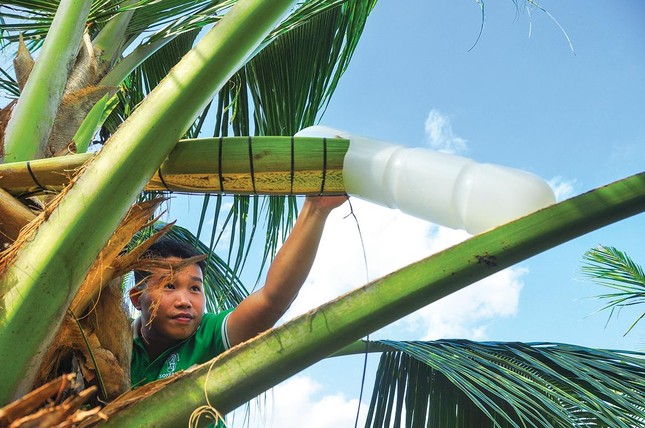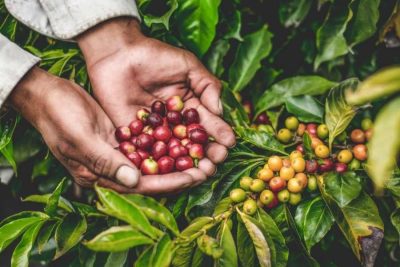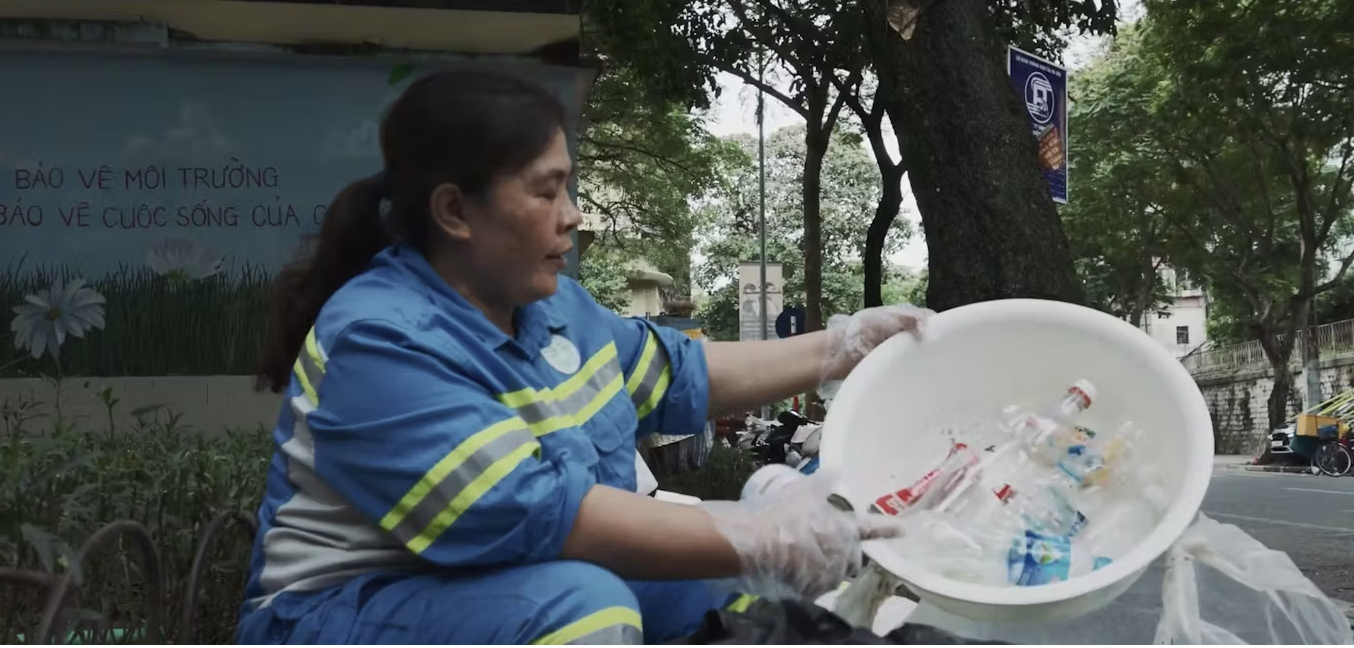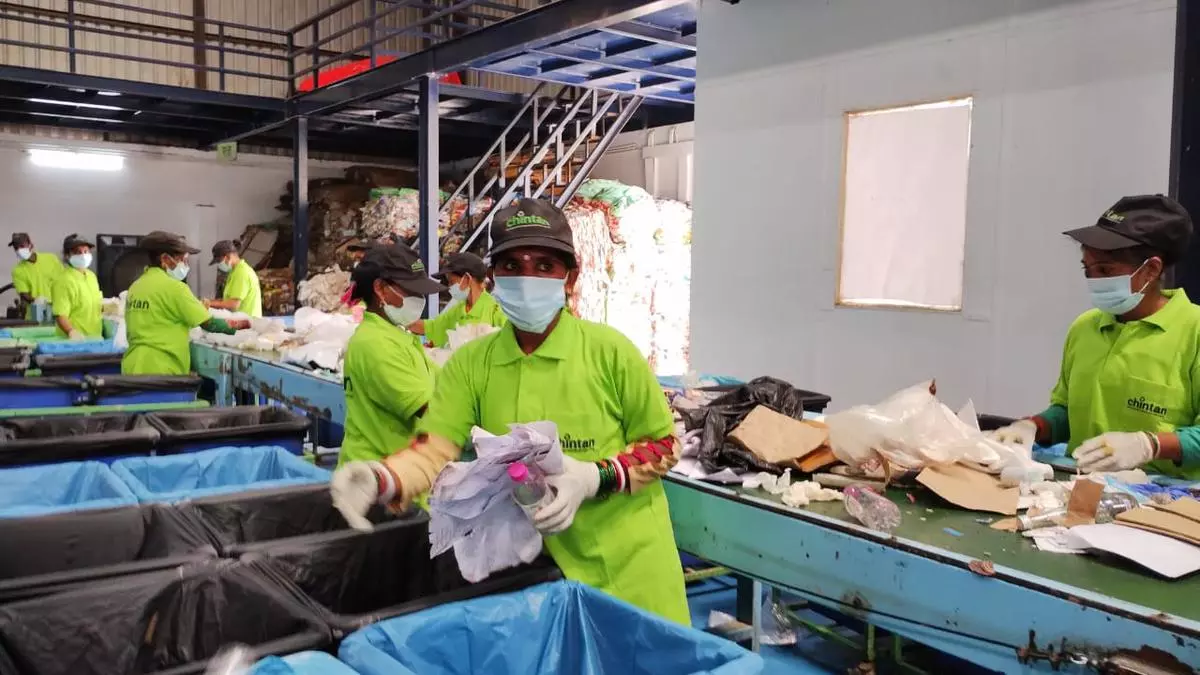For more than 4 months now, the COVID-19 epidemic situation has been developing fiercely, greatly affecting the economy. With young startups like Tra Vinh Farm Co., Ltd. (Sokfarm) with Mr. Pham Dinh Ngai as CEO, Tieu Can town (Tieu Can, Tra Vinh) is no exception. However, amidst all these difficulties, he steered the boat through many storms to bring the product to the world.
 |
|
Mr. Pham Dinh Ngai is collecting coconut nectar |
Mr. Ngai said that for coconut nectar products, Sokfarm can buy them in Tra Vinh, but the raw materials for production are mostly suppliers in Ho Chi Minh City, so the price comes from bottles, labels… costs increase. Not to mention, if not stockpiled, the production chain will be broken. Therefore, the Company must purchase and reserve those raw materials to ensure uninterrupted production.
Faced with difficulties, Ngai thinks that one must always find opportunities in difficulties. Currently, the domestic market is facing difficulties so we are looking for foreign countries to export. Through many different channels, Mr. Ngai sells his products to Asian and European countries. And after a period of negotiation and working with partners, the first shipment of coconut nectar was officially exported to Japan at the end of August. At the same time, in mid-September, the second shipment continued to be exported to the Netherlands. “Although the number of official export orders to Japan and the Netherlands is not much, it opens up great opportunities to export to other countries around the world” Mr. Ngai shared.
Mr. Ngai said, to export to Japan is an elaborate process, many months of serious work, especially in terms of product quality to meet export standards, the partners have strict requirements. Not to mention, they also strictly require hundreds of criteria on pesticide residues. “During the epidemic, everything works together online, but the language barrier is also a big barrier, but we still try to meet their requests,” Mr. Ngai shared.
Mr. Pham Dinh Ngai (32 years old) is from Dong Thap, his wife is from Tra Vinh, both have stable jobs in Ho Chi Minh City. His wife has a master’s degree in food technology, working in sales for foreign businesses, and Mr. Ngai also has a master’s degree in electrical engineering, teaching at Cao Thang Technical College. After that, Mr. Ngai moved to work for a cocoa business in Tien Giang. At that time, both husband and wife had a good income.
In 2018, in Tra Vinh, coconut prices fell to a record low, with no buyers. “At that time, coconuts were only 20,000 VND/dozen (12 coconuts), so one coconut was only the size of a glass of iced tea, while farmers were working hard, putting in effort to get the product but getting little. Furthermore, Tra Vinh is the locality with the second largest coconut growing area in Vietnam with over 25,000 hectares but farmers still cannot get rich from this indigenous resource,” Mr. Ngai worried.
Faced with that reality, Mr. Ngai thought, I have the conditions to go abroad to study and see the model of collecting coconut nectar, while in my hometown, farmers are miserable but cannot make a living with the tree that has been with them for many generations. From then on, he and his wife decided to return to their hometown to start a business.
At first, the coconut flowers did not produce honey as expected, Mr. Ngai and his colleagues climbed up and down to correct the method of extracting honey for 6 months, then he went abroad to learn from experience to achieve the desired results.
Mr. Ngai thinks, if successful, this industry will develop sustainably and improve the livelihoods of local people, helping coconut farmers increase the economic value of their households by 3-5 times, and especially developing green development. Because all the processes are waste-free and recyclable, everything is sustainable. “Currently, in the context of climate change, many types of fruit trees are affected, but coconut trees are always green. Therefore, coconut trees will be one of the future conversion plants in the West. Furthermore, if developed well, growing coconuts for honey will be a new direction for people,” Mr. Ngai confided.
From coconut nectar, more than 30 other products can be processed. At the same time, coconut nectar products are vegan so people with diabetes, dieting, the elderly or children can use them. Besides, the current consumer trend, especially vegetarians, needs to find natural sweeteners to replace cane sugar and honey. Therefore, this trend is getting bigger and bigger, so this is an opportunity to develop indigenous agricultural products.
Currently, Sokfarm has 6 product lines: coconut nectar drink, concentrated coconut nectar, coconut flower sugar, coconut nectar vinegar, fermented coconut nectar and coconut nectar cocoa. Each month the company consumes 15 – 20 tons of fresh honey to produce 3 – 4 tons of products.
For Pham Dinh Ngai, the factor of success is “honesty”, because when working with partners, appreciating honesty, openness and transparency, they will accompany you. In addition, one of the other factors is changing thinking to adapt to all situations. Typically in August, although located in Tra Vinh, coconut nectar products still participated in the international fair on coconut industry in Jakarta (Indonesia). “Currently the economy is difficult, so if we want to survive there is no other way than to convert digitally, adapting wherever we go,” Mr. Ngai said.
Tra Vinh is one of the localities where a large number of Khmer people live. Currently, most of the company’s employees are Khmer ethnic people, accounting for over 90%. “The core value of Sokfarm is to build a brand in the homeland that incorporates the traditional profession of the Khmer people.”


















